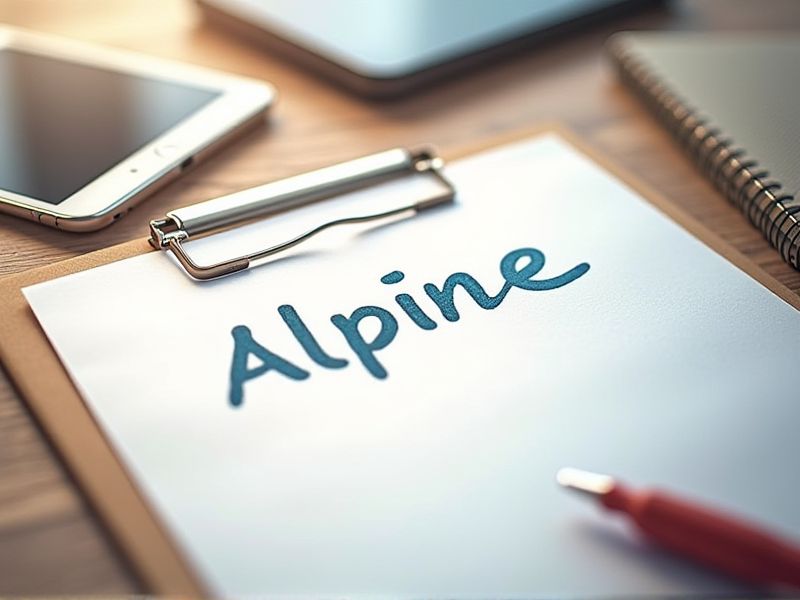
Alpine skiing instructors require certain certifications to ensure they possess the necessary skills and safety knowledge to teach effectively. The certifications provide an assurance of competence in navigating the physical and technical demands of mountain environments. Instructors equipped with these credentials can deliver a safer and more enriching experience for their students. Key certifications for aspiring Alpine skiing instructors include the following.
Professional Ski Instructors of America (PSIA) Alpine Certification
Obtaining the PSIA Alpine Certification ensures that ski instructors meet industry-wide standards, enhancing the quality and consistency of instruction delivered to students. The certification process involves rigorous training in skiing techniques, safety protocols, and teaching methodologies, which help instructors effectively cater to diverse skill levels and learning styles. Certified instructors often find better employment opportunities and career advancement, as ski schools and resorts tend to prioritize hiring individuals who can demonstrate verified competence. As skiing involves inherent risks, certified professionals are better equipped to manage and mitigate potential hazards, promoting a safer skiing environment for participants.
Canadian Ski Instructors' Alliance (CSIA) Certification
The CSIA certification provides a structured and standardized training program that ensures skiing instructors have the necessary skills and knowledge to teach effectively. It establishes a professional benchmark that enhances credibility and trust among potential clients looking for high-quality skiing instruction. By requiring CSIA certification, ski schools can maintain consistent safety and instructional standards, reducing risks associated with unqualified instruction. The certification often serves as an important career advancement tool for instructors, leading to better job opportunities and possibly higher salaries within the alpine skiing industry.
International Ski Instructors Association (ISIA) Certification
The ISIA Certification ensures uniformity in teaching standards across different countries, which allows ski instructors to work internationally. It demonstrates a high level of expertise and commitment, increasing credibility and trust among clients and employers. By obtaining this certification, instructors can access advanced training opportunities, fostering continuous professional development. Many ski resorts and ski schools require ISIA Certification as a prerequisite to ensure quality and safety in instruction.
British Association of Snowsport Instructors (BASI) Alpine Certification
Gaining BASI Alpine Certification ensures instructors possess standardized skills and knowledge essential for teaching skiing techniques effectively. The certification enhances safety by providing instructors with the latest methodologies to manage diverse snow conditions. It also boosts credibility, making ski professionals more appealing to ski resorts and schools globally. BASI certification aligns with international recognition, facilitating career opportunities across different countries.
Avalanche Level 1 Certification
An Alpine skiing instructor with an Avalanche Level 1 Certification is better equipped to recognize and evaluate avalanche risks, ensuring the safety of both themselves and their students. This certification provides foundational knowledge in avalanche terrain navigation, which is crucial for guiding clients in unpredictable mountain environments. Possessing such certification demonstrates a professional commitment to safety standards, increasing credibility and trust among clients. In situations where split-second decisions are required, the training helps prevent accidents, thereby reducing legal liabilities for ski schools and instructors.
Wilderness First Aid Certification
Wilderness First Aid Certification equips an Alpine skiing instructor with essential skills to manage injuries in remote mountain environments, where immediate medical help is unavailable. This certification provides knowledge on handling specific ski-related injuries such as fractures or hypothermia, ensuring the safety of participants. Instructors with this certification can make informed decisions during emergencies, potentially reducing the severity of injuries and preserving life. Meeting professional safety standards through certification also builds trust with clients and enhances the instructor's credibility in the competitive field of Alpine skiing.
CPR/AED Certification
Alpine skiing instructors guide participants through challenging terrains, which increases the risk of accidents and sudden cardiac events, necessitating CPR/AED certification for immediate emergency response. Certification equips instructors with the skills to stabilize injured individuals until professional medical help arrives, potentially reducing fatalities. The presence of trained personnel can enhance the confidence and safety perception of participants, leading to a more positive experience on the slopes. Instructors with CPR/AED certification align with industry standards, ensuring compliance with safety regulations and possibly impacting insurance requirements.
Adaptive Skiing Instructor Certification
Adaptive Skiing Instructor Certification enhances instructors' ability to effectively teach individuals with disabilities, ensuring tailored learning experiences. This certification provides in-depth knowledge of specialized equipment and techniques, addressing diverse needs and improving safety during alpine skiing lessons. Having certified instructors boosts confidence among participants and their families, increasing accessibility and enjoyment of the sport. Accredited programs support inclusivity in alpine skiing, attracting more participants and fostering a wider acceptance of adaptive sports.
Alpine Ski Technique Proficiency Certification
Alpine Ski Technique Proficiency Certification ensures that instructors possess up-to-date skills to teach safely and effectively. The certification sets a standardized benchmark, allowing ski schools to maintain consistent quality in instruction. With proficiency certification, instructors demonstrate thorough knowledge of diverse terrains and varying snow conditions. Certification enhances trust among students, leading to increased satisfaction and safety on the slopes.
Ski Coaching and Communication Skills Certification
Effective ski coaching improves technique and confidence, leading to better performance on the slopes. Certification in communication skills ensures instructors can convey complex concepts clearly, reducing the risk of injury. Instructors with these certifications can tailor their approach, meeting diverse learner needs and enhancing the learning experience. Evidence suggests certified instructors typically receive higher client satisfaction rates, boosting client retention and business growth.
Summary
You'll likely notice an Alpine skiing instructor's credibility significantly increase with certifications. These credentials can lead to more advanced teaching opportunities, often translating into higher income. As a result, student trust tends to grow, enhancing reputation within the skiing community. This combination of factors may drive demand for lessons, broadening their client base.
